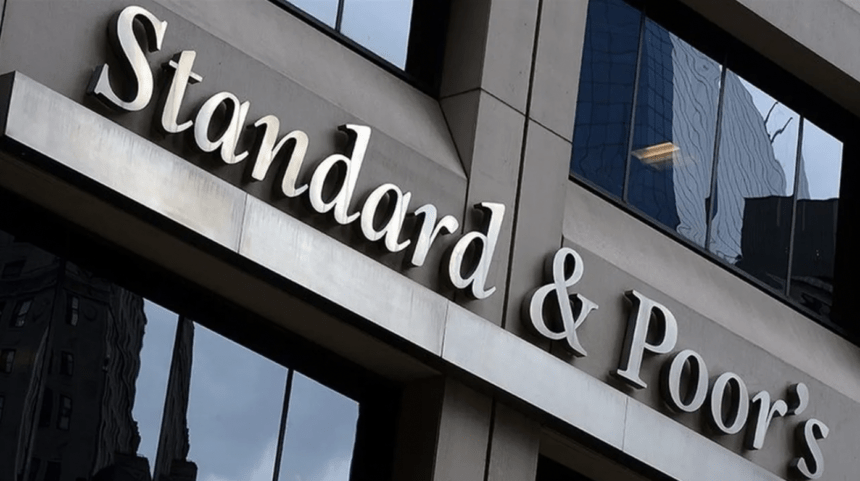International credit rating agency Standard & Poor’s (S&P) affirmed Turkey’s credit rating as “B” and changed its credit rating outlook from “stable” to “positive”.
The move comes outside of a strict ratings calendar and S&P said the deviation complies with recent interest rate hikes and the decline in twin deficits.
S&P said in a statement that policymakers are making progress in cooling an overheating economy while the Central Bank of the Republic of Turkey (CBRT) is slowly rebuilding its depleted stock of net foreign exchange reserves.
The Turkish Central Bank’s net international reserves rose by near USD 7 billion to USD 35.81 billion in the week to Nov. 24, hitting its highest since March 2020, data showed on Thursday.
Pointing to the CBRT’s interest rate hikes since June, the statement emphasized that the country’s twin deficits have also decreased.
In the statement, it was reported that the budget deficit for 2023 is expected to be lower than the targeted rate of 4.3 percent of gross domestic product (GDP), while the current account deficit is expected to narrow gradually as imports decline sharply.
Turkey’s sovereign credit rating was affirmed at “B” and the credit rating outlook was revised from “stable” to “positive”, the statement said, adding that the long-term sovereign rating could be upgraded by one notch if the balance of payments improves further, foreign exchange reserves increase more rapidly and dollarization declines over the next 12 months.
Turkey’s economy rebalanced
Turkey’s new economic administration is expected to further tighten credit conditions and the economy is expected to avoid a direct recession, the statement said, noting that the latest data confirm that the Turkish economy has both slowed and rebalanced as consumption has weakened since the beginning of the third quarter.
The Turkish economy is forecast to grow by 3.7 percent this year and 2.4 percent in 2024, according to S&P estimations.
The next scheduled review for Turkey will take place in 2024, S&P said.










